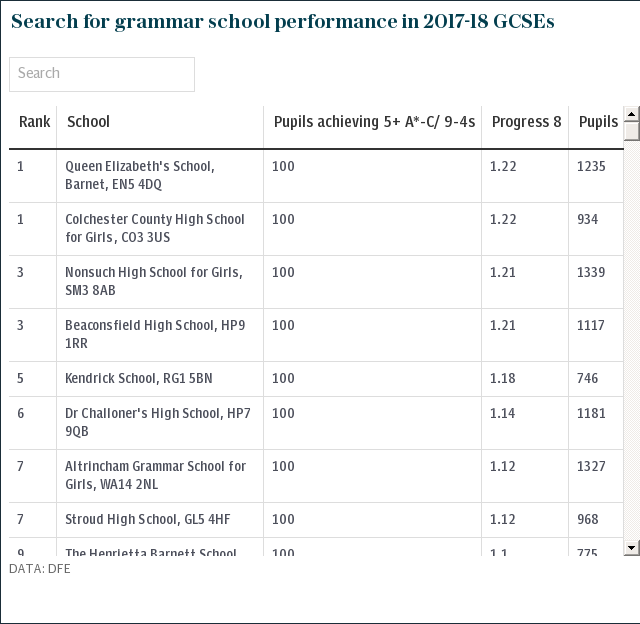The parents' guide to choosing new-style GCSEs: from STEM and coding crazes to the most prestigious subjects

The parents' guide to new-style GCSE selection: from the STEM and coding crazes to the new most prestigious subjects that may actually help your child succeed in life
Don’t know much about history? Don’t know much biology? Parents across the country are puzzling over the merits of different combinations of school subjects over the next few weeks, as they help their teenage children pick which subjects to keep and which to drop for GCSE.
The GCSE system was completely revised in 2015, which means that even if you’re a younger parent who took GCSEs instead of O-levels yourself, your experience won’t be relevant when it comes to helping your teens. The new curriculum is harder and more intense - with a greater emphasis on learning by rote - and a new system of grades ranging from 1 to 9, rather than G to A*.
Head teachers and education experts acknowledge that the changes have made picking options stressful for parents and students alike. The new curriculum has led to most teenagers taking fewer qualifications than in the past, while decisions are made far earlier than previously, often in Year 8 when children are 12 or 13.
“The biggest anxiety for parents and pupils is that they will make these choices and somehow it will have been the wrong choice. Then, their unknown futures are going to be cut off because they made this choice in Year 9,” says Jo Sharrock, head teacher of independent girls school Shrewsbury High. She describes the process as a “delicate balance”, narrowing down the curriculum to preserve teen mental health without closing any doors for a child’s future.

Parents may be confused, but they must get involved, she says.
“This is probably the first time your child will make a decision that affects their future - they are going to want your input, guidance and your support because you are the one they trust the most,” she says. “Just don’t be tempted to make the decision for them.”
Quality over quantity: don’t push them to take too many
Parents often push their children to take large numbers of exams.
“Sometimes we have to explain to parents that less is more,” says Duncan Byrne, head teacher of independent boys school Loughborough Grammar.
Sharrock, at Shrewsbury, says “nine is the magic number”, while the Independent Schools Council, which includes most of the leading private and public schools in the UK among its members, says that 9.4 is the average.
Even Kingsdale headteacher Steve Morrison, whose South London comprehensive regularly has children taking 14 or 15 GCSEs, says that a string of GCSEs stretching into double figures is a strategy for the few, not the many.
“We don’t want to hold children back, and the few who take this many do so because they are exceptionally gifted,” he says, pointing out that the school also has many gifted children whose interests are narrower and who thrive on studying fewer qualifications.
Universities and sixth form colleges stress that having fewer GCSEs is not a disadvantage, even at topflight institutions. Claudia Harrison is Academic Deputy Head at LAE in Stratford, a sixth form college that was dubbed the “East End Eton” after sending 22 students to Oxbridge in September. It offers places based on the average of a child’s top eight GCSEs.
“In terms of getting into our sixth form, maximising eight is better than spreading across more,” she says. Universities also tend to look at the eight best GCSEs.
The EBacc route
At GCSE some subjects are compulsory, and once you’ve taken into account maths, English language, English literature, and either two or three science GCSEs, you are left with only three or four choices.
Some schools choose to narrow this further. If your child goes to a state school, you’ll probably hear a lot of talk about the EBacc, or English Baccalaureate. The EBacc isn’t a qualification in itself, just a supposedly gold-standard suite of GCSEs that includes a humanity (history or geography) and a foreign language.
Because schools are judged on the percentage of students who pass this suite of subjects, they will usually push their more able cohort members towards this route.
Education experts say that the EBacc doesn’t suit everyone, and if you don’t feel it is right for your child, you should push back, particularly if there are any special needs involved.
“I work a lot with dyslexic students,” says Jemma Smith, who runs tutoring and education agency Education Hotel. “If you are required to take a certain number of essay subjects that can get very heavy with a processing disorder. Add a language and it gets quite stressful”.
Sharrock, at Shrewsbury, says that the school does not force all children to take a modern foreign language. “We strongly recommend it, for good educational and philosophical reasons, but for some students it just isn’t appropriate. Making those students take a language can really close doors for them - taking another subject where they flourish is better.”
Most leading universities, including Oxford and Cambridge, do not require the EBacc suite of subjects.
Double or triple science
Sciences choices can be particularly complicated. Your child’s school may offer any or all of the following: triple science, which is three separate GCSEs in physics, chemistry and biology; double science, which covers all three sciences in less depth and leads to only two GCSEs; or the option to take one, two or three single science qualifications which are not the same as triple science and are usually only offered at independent schools.
While many schools push the most academically able to take triple science, the content is huge, and can result in students having one option fewer to use for other things. Students can move onto A-level without triple science, although the step up may be tougher
“Students shouldn’t feel it is compulsory to choose triple award to secure their future,” says Natasha Tiwari, founder of education and tutoring group Veda. “The taking of triple science will purely showcase your commitment and make A-level study a little less challenging - though only really for a brief moment.

Managing mental health
Some subjects are renowned for their heavy workload, so it’s possible to pick a toxic combination that can damage your child’s mental health.
“Play to your strengths. Each person’s easiest and lightest isn’t the same,” advises Smith, at the Education Hotel. However, she points out that Art GCSE is renowned for the huge amount of work needed to assemble a portfolio.
“Often students don’t think that far forward. They just think: I like art,” she says.
Some ways to take the pressure off include taking a modern language that you already speak, or a GCSE such as music if you are already proficient on an instrument.

However, Tiwari says that you shouldn’t dissuade a child from a subject they love, even if they don’t excel in it.
“If your child loves a subject they struggle with, that subject is still a good choice. Parents should nurture where they are struggling; their child’s passion and love for the subject will drive them forward.”
If it all goes wrong
The options process doesn’t always go without a hitch. Not everyone will get the choices they hope for, and some later regret their picks.
Many schools offer the chance to change in the first term or so, but don’t leave it too late, because there is a lot of curriculum to cover.
If your child is disappointed in their allocation, remember this need not be the end of the story. There are very few subjects you can’t take at A-level even if you haven’t taken them for GCSE. Byrne, at Loughborough, advises students to keep up their skills in other ways. His school offers a Silver Arts Award, for example, for students who want to develop creative skills.
A disappointment might lead to new passions, too.

“My daughter was told she couldn’t do German, which she’d loved,” says parent Radhika Holmstrom. “She then picked art. Three years later, she has become an art enthusiast, is doing history of art A-level, goes to exhibitions off her own bat and asked for a Tate membership for Christmas.”
Picking GCSE options needn’t shut doors, and sometimes it can open windows.

 Yahoo News
Yahoo News 
